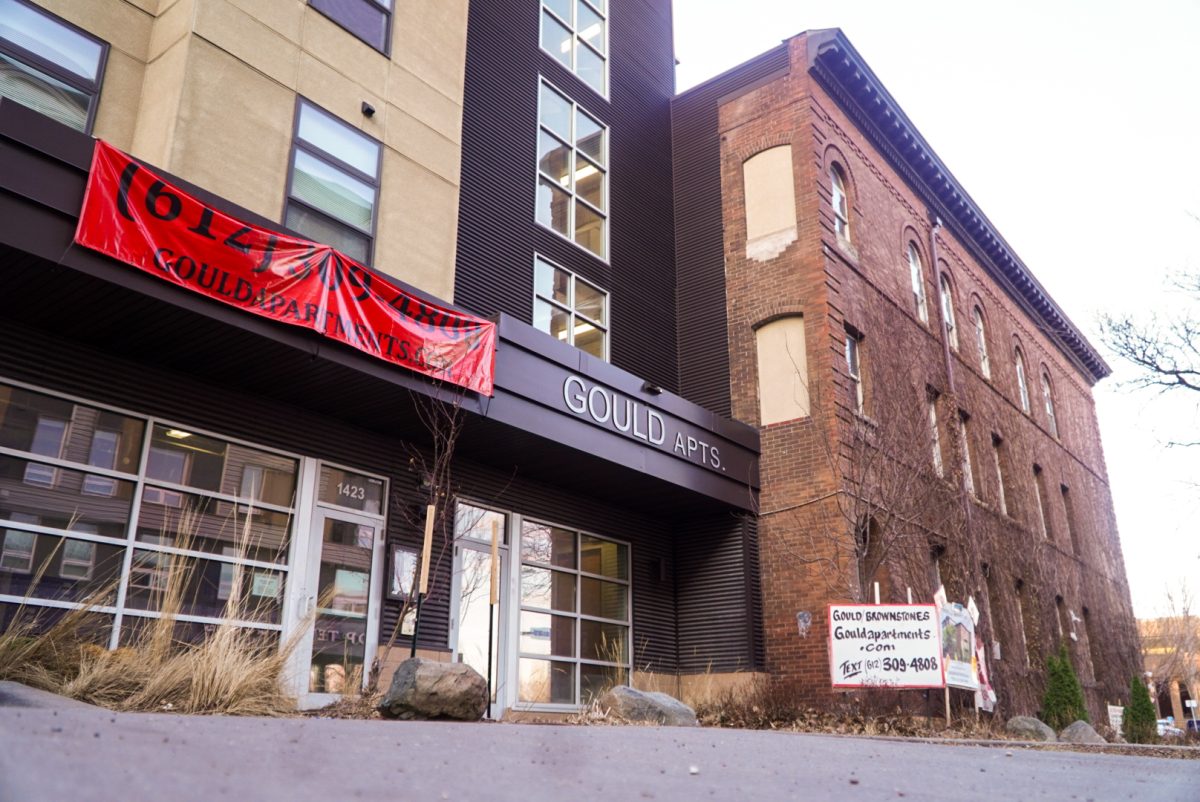Thousands of people bearing signs proclaiming “Science is Cool” and calling to “Make Earth Cool Again” marched Saturday afternoon to advocate for science.
More than 10,000 people rallied at Cathedral Hill Park and marched to the State Capitol in St. Paul as part of a national day of similar marches. The event came after President Donald Trump proposed cuts to science research funding last month, including a 31 percent reduction for the Environmental Protection Agency.
The march brought together students, researchers and familes from across the Twin Cities area. Even giant woolly mammoths and dinosaurs made an appearance.
Several in the march gave speeches, from professional scientists and teachers to U.S. Rep. Betty McCollum, D-Minn.
“The scientific method means everything; it’s the most truthful thing I have ever known,” said Andrea Veloira, a student in the University of Minnesota’s College of Biological Sciences.
Common themes throughout the march were disapproval for President Donald Trump and his administration, though the march was billed as nonpartisan.
“I feel like this is some place where I can make my voice heard,” said Sid Paari, a College of Liberal Arts student. “I am not a citizen, so I can’t necessarily vote, but it’s just a way I can let people know that this is something I support.”
The president previously called climate change a hoax and appointed a head of the Environmental Protection Agency who wants the U.S. to withdraw from the Paris climate accords.
“I think as scientists we held the assumption that people will believe us because we firmly believe what we do and prove the things we say … We have to make this continuing effort to let the people know why science is important and it’s neutral,” said Paul Siliciano, a University biochemistry professor.
Other marches happened around the state, including in Rochester and Duluth.
“We are facing huge challenges with healthcare with the aging population … You need the science behind that, and you need to fund it and be supportive of it,” said Carrie Wilmot, the CBS associate dean for graduate education.
The new administration proposed an 18.3 percent cut to the National Institutes of Health’s $31.7 billion budget. NIH contributed more than 32 percent of the University’s federal funding and the National Science Foundation accounted for nearly 11 percent last year.
“As a physician, there has been so much improvement in people’s lives over the last 50 years due to science and research. It’s important that this continues but also important not to lose ground,” said Dr. Deanna Siliciano, an anesthesiologist with Twin Cities Anesthesia Associates.








